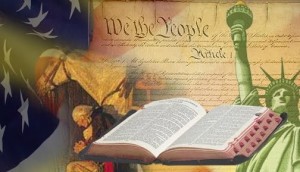 We are living at a time when the Church in the United States must vigorously defend herself against attacks on religious freedom. In particular, the government is trying to force believers to violate their consciences when it comes to what kind of services their companies’ health insurance policies will cover. Priests for Life is proud to have launched one of the first lawsuits against this unjust mandate of our government, and we are confident we will prevail.
We are living at a time when the Church in the United States must vigorously defend herself against attacks on religious freedom. In particular, the government is trying to force believers to violate their consciences when it comes to what kind of services their companies’ health insurance policies will cover. Priests for Life is proud to have launched one of the first lawsuits against this unjust mandate of our government, and we are confident we will prevail.
Yet part of defending religious freedom is defending a clear understanding of what it is. We don’t only have to defend it against the government; we have to defend it from misunderstanding and misinterpretation. And one of the most dangerous misunderstandings is to confuse religious freedom with relativism — to think, in other words, that it’s simply the idea that “you can practice your religion if you let me practice mine,” because, after all, one religion is as good as the next. But it’s not.
There is such a thing as religious truth, and moral truth, and we are capable of knowing them. At the core of authentic religious freedom is the conviction that human persons, because of their dignity, must seek the truth and embrace it freely — not the idea that such truth does not exist or is a product of one’s own making.
Put another way, freedom does not create truth; it is meant to lead to truth.
Professor Janet Smith wrote recently,
“Bishop William Lori argued that making Catholics fund contraceptives, abortifacient contraception and sterilizations is like making kosher delis serve pork. Actually, it is more like making all of us, and particularly the Anti-Smoking League, fund cigarettes.
“Jews do not argue that eating pork is something no one should do, but Catholics do argue that using contraception is something no one should do; among other reasons, the Church condemns it as against the natural law; it is against the health of women, the health of relationships and the health of society.” (National Catholic Register, March 12, 2012)
This is a critically important point. Many are fond of saying that this fight isn’t about the issues of contraception and abortion. On the other hand, it cannot be disconnected from them. The other side doesn’t disconnect them.
Abortion advocate Patricia Baird Windle declared that abortion is part of her religion. ” You practice your religion and let me practice mine. My religion is a holy ritual of child sacrifice,” she has declared. Ginette Paris wrote the book The Sacrament of Abortion. And when the Freedom of Access to Clinic Entrances law was passed in 1994, it included not only abortion clinics but also houses of worship. In the days of Operation Rescue, when pro-life activists blockaded abortion clinics, some abortion advocates retaliated by blockading Churches. They were returning insult for insult, for to them, the clinic is their place of worship.
So let’s be sure we’re clear about what kind of religious liberty we want to defend: one that serves the truth about life!



